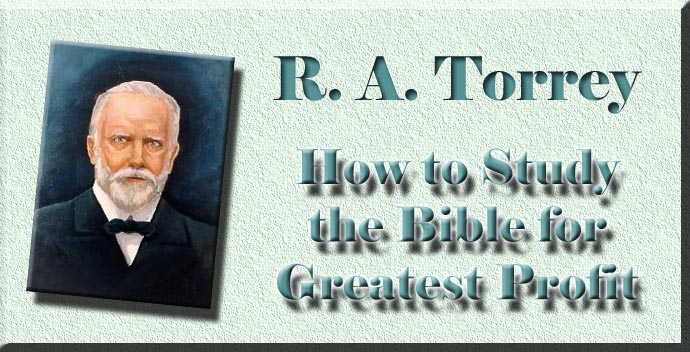
How To Study the Bible for Greatest Profit
By R. A. Torrey
Part First - Methods of Profitable Bible Study.
Chapter 4
BIOGRAPHICAL STUDY.A third method of study is the Biographical. This needs no definition. It consists in taking up the various persons mentioned in Scripture and studying their life, work and character. It is really a special form of Topical Study. It can be made very interesting and instructive. It is especially useful to the minister with a view to sermon building, but is profitable for all Christians. The following suggestions will help those who are not already experienced in this line of work.
It will be well to begin with some person who does not occupy too much space in the Bible, as, e. g., Enoch or Stephen. Of course many of the points mentioned above cannot be taken up with some characters. Suggestive books in character studies are Stalker's Lives of Christ and Paul, and Stalker's "Imago Christi"; Rev. F. B. Meyer's "Elijah," and also other O. T. characters; Mr. Moody's "Bible Characters."
|
|
 |
 |
|
|
|
-
Site Navigation
 Home
Home What's New
What's New Bible
Bible Photos
Photos Hiking
Hiking E-Books
E-Books Genealogy
Genealogy Profile
Free Plug-ins You May Need
Profile
Free Plug-ins You May Need
 Get
Java
Get
Java.png) Get Flash
Get Flash Get
7-Zip
Get
7-Zip Get Acrobat Reader
Get Acrobat Reader Get
TheWORD
Get
TheWORD